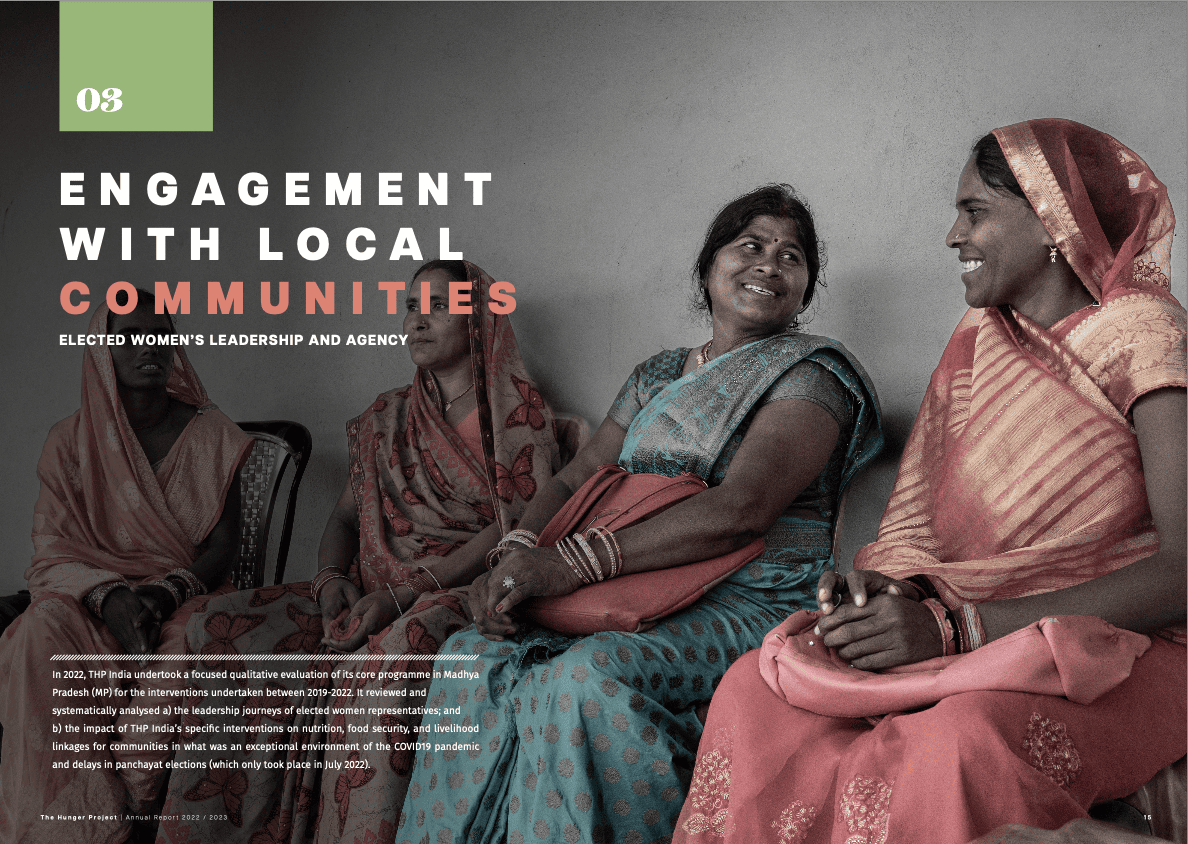A new report from THP-India highlights the power of elevating women’s voices in local leadership.
Since 2001, we have actively engaged with close to 200,000 elected women representatives (EWRs) in India. Women participate in our training program that supports their leadership and strengthens their ability to navigate the Indian government systems and processes.
We currently work in six states—Karnataka, Madhya Pradesh, Odisha, Rajasthan, Bihar, and Uttarakhand—reaching 1,215 panchayats (village councils) in 37 Districts. In 2022, we made significant strides by enrolling 7,389 elected women representatives and 4,000 adolescent girls in our programs.
THP-India’s latest annual report highlights the impact of these women throughout India and underscores the important role they play in creating thriving communities without hunger. Read Kalli’s story below and download the full report to learn more.
What are EWRs?
In 1992, the 73rd Amendment to the Indian Constitution mandated that one-third of all seats in panchayats be reserved for women, bringing more than one million women into elected office. Now, we partner with Elected Women Representatives (EWRs) to become effective and respected leaders in their communities.
Meet Kalli, an elected women representative since 2015
Kalli’s mission is to secure functional infrastructure for her village, including childcare centers, bridges, water wells and access to pensions. Actively engaging with her community, she adopts a hands-on approach to address problems.
It’s been about learning, understanding, and putting that into practice. I still have the gumption, and I am able to support those who need me.
Kalli from India
Kalli’s advocacy for her community has led to the construction of nine bore wells, providing clean water access to 300 households. Despite caste discrimination dictating water access, she leveraged local government resources to break barriers, ensuring Dalit households were no longer suppressed.
“I went to the block office, spoke to the land revenue officer, wrote petitions, went to the collector, and got the work done,” Kalli recalls.
The leadership and persistent advocacy of EWRs are key to ensuring that governmental measures are accessible to all. Together, our global community continues to advocate for basic human needs like food, sanitation and accurate information while addressing long-term issues of gender-based violence, food insecurity and community-led development.


